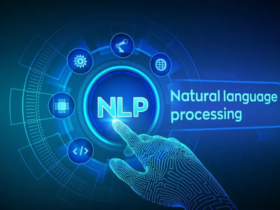Have you ever been captivated by the beauty of anime and wondered what it would be like to speak Japanese? Or maybe K-dramas have piqued your interest in Korean?
Well, both Japanese and Korean are fascinating languages with rich cultures, and it’s no wonder you might be considering learning them. But what if you could tackle them both at the same time?
The question is: Would this be a recipe for confusion, or could it actually accelerate your learning?
Let’s dive in and explore the potential benefits and challenges of learning Japanese and Korean simultaneously.
Read aslo :- The Future of Education: What Next for Online Exams?
Potential Challenges of Simultaneous Learning

Trying to learn two languages at once, especially languages with some overlap like Japanese and Korean, can definitely present some hurdles.
Here’s a breakdown of some potential challenges to watch out for:
Shared vocabulary with different meanings:
Both Japanese and Korean have adopted many words from Chinese characters, which can look similar but have entirely different meanings.
For instance, the character for “teacher” (先生) is pronounced “sensei” in Japanese and “seonsaeng” in Korean, but they refer to different concepts (teacher vs. teacher/professor).
Similar grammar structures with subtle variations:
Sentence structures in both languages share some similarities, but the order of words and the use of particles can be quite different. Focusing on both at the same time might lead to accidentally mixing up the rules.
Potential for mixing up writing systems:
Korean uses Hangul, a phonetic alphabet, while Japanese utilizes a combination of three different scripts: Hiragana, Katakana, and Kanji.
Juggling these while learning Korean’s Hangul can be overwhelming and lead to confusion between characters.
Divided focus and slower progress:
Learning one language takes dedication and focus. Dividing your attention between two languages can slow down your progress in both. It might take longer to achieve fluency in either language compared to focusing on one at a time.
Potential Benefits of Simultaneous Learning
Now, let’s look at the flip side of the coin. There are some potential benefits to be gained from tackling Japanese and Korean at the same time.
Here’s how these similarities might actually work in your favor:
Easier recognition of vocabulary with shared roots:
Many Japanese and Korean words share common Chinese character origins. This can give you a head start in recognizing vocabulary in both languages.
Once you learn a character’s meaning, you might be able to guess its meaning in the other language based on context.
Reinforcement of grammar concepts through comparison:
While the grammar structures of Japanese and Korean have their differences, they also share some similarities. Studying them simultaneously can help solidify your understanding of grammatical concepts.
By comparing and contrasting the sentence structures, you might find it easier to grasp the underlying logic in both languages.
Improves overall language learning strategies:
The process of juggling two languages can actually make you a more strategic language learner. You’ll likely develop effective techniques for memorization, organization, and time management, which will benefit you in both languages.
Strengthens memorization and information processing:
The mental challenge of learning two languages simultaneously can strengthen your cognitive abilities. You’ll be exercising your memory muscles more intensely, which can improve your overall information processing and retention skills.
Factors to Consider When Making Your Decision
So, should you start learning Japanese and Korean simultaneously? Here are some key factors to consider before making your decision:
Learning goals and desired proficiency level:
What are you hoping to achieve? Are you aiming for basic conversational skills, or do you want to achieve fluency in both languages? The more ambitious your goals, the more time and focus you’ll need.
Learning two languages at once might slow down your progress in each. Be realistic about the level of proficiency you can realistically achieve with divided attention.
Prior language learning experience:
Are you new to language learning? If you’re new to language learning in general, it might be easier to start with one language at a time to build a solid foundation in the learning process itself.
If you’re considering tackling the challenge of learning Japanese and Korean, your language-learning experience can be advantageous. However, it’s essential to approach this decision with careful consideration. Starting to learn Japanese and establishing a foundation in the language can provide you with valuable insights into language learning techniques and strategies. Once you feel comfortable and confident in your Japanese language, you can start learning Korean. These focus your attention and efforts effectively, ensuring a smoother and more efficient learning experience. To support your language learning journey, consider leveraging resources and guidance from language learning platforms like Language Trainers, which offer tailored solutions to meet your individual needs and goals.
Having successfully learned another language can equip you with valuable strategies and make you a more confident learner. This experience can be helpful when tackling two new languages simultaneously.
Time, commitment, and learning style:
How much time can you realistically dedicate to studying? Learning two languages requires significant time investment. Be honest with yourself about how much time you can consistently dedicate to each language.
Do you thrive on variety and challenge, or do you prefer a more focused approach? If you enjoy a challenge and can manage your time effectively, you might find learning both languages simultaneously stimulating.
How to make Simultaneous Learning Successful?
So, you’ve weighed the pros and cons and decided to learn both Japanese and Korean at the same time!
Explore online communities dedicated to learning Japanese and Korean. These communities can provide valuable tips, support, and a chance to connect with other learners on the same journey.
Moreover, a tutor can provide personalized guidance and address any specific challenges you might encounter while learning two languages simultaneously. Look for a platform that offers tutors for both Japanese and Korean.
Finding the right tutor:
While there are many reputable options available online, we highly recommend AmazingTalker’s Korean tutoring – 한국어 과외 and Japanese tutoring – 일본어 과외. If you’ve decided to learn Japanese and Korean simultaneously, a qualified tutor can provide invaluable support and guidance.
With AmazingTalker, you can take control of your language-learning journey. Browse tutor profiles, schedule trial lessons, and find the perfect fit to help you achieve your Japanese and Korean language goals.
Read aslo :- Things To Do in Manchester, UK as A Student
Conclusion
So, is learning Japanese and Korean simultaneously a recipe for confusion or a path to accelerated learning? The answer, like most things in life, is that it depends.
Remember, there’s no single “right” approach. If you’re unsure, you might consider focusing on mastering one language first and then tackling the other. This can give you a solid foundation in the language learning process itself before taking on the challenge of two languages at once.















Leave a Reply